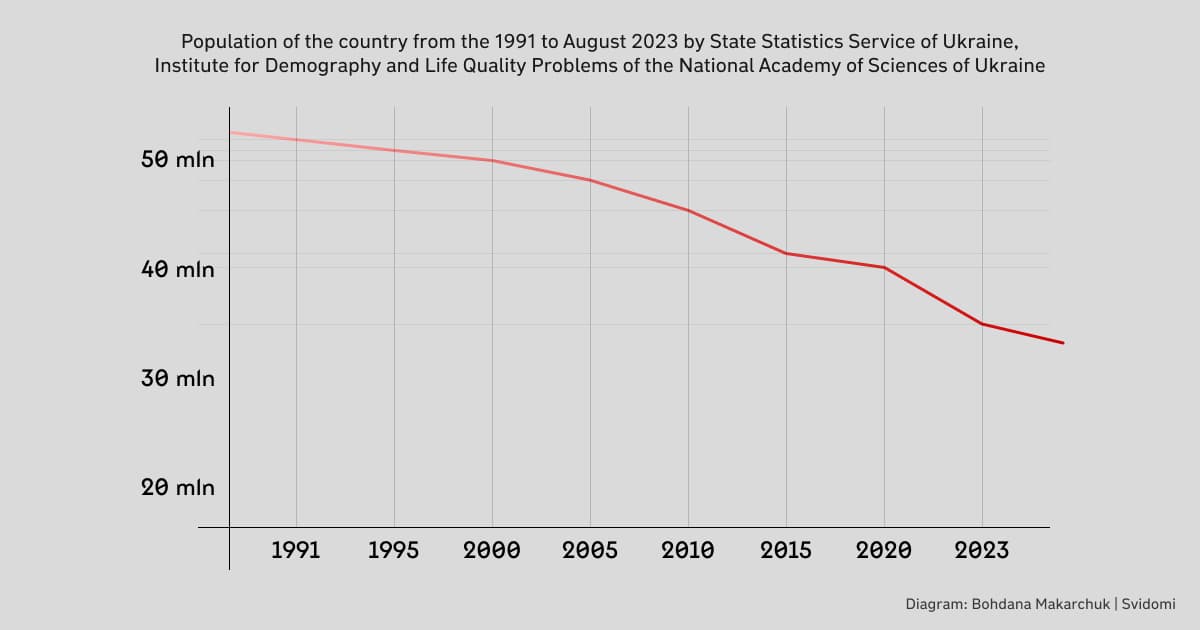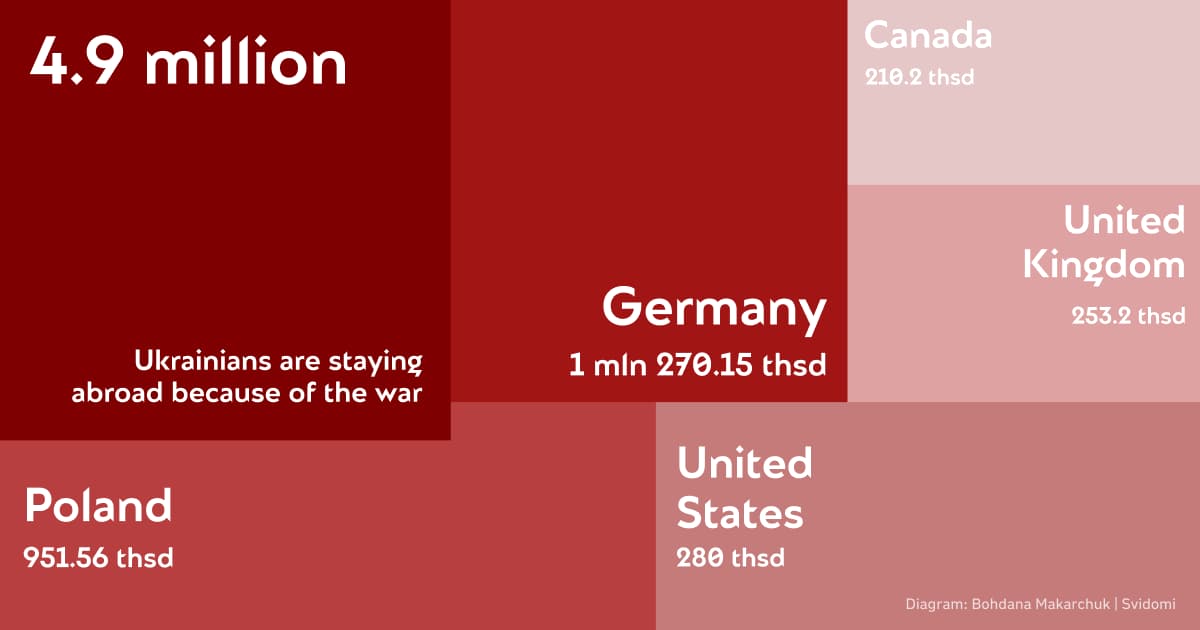Demographic crisis in the country: Why should Ukraine return its citizens?

It is currently impossible to say exactly how many people Ukraine lost in the full-scale war. However, there have been continuous demographic problems. The low birth rate, demographic ageing, deteriorating health of the population, an increasing number of people with disabilities, high premature mortality, especially among men, and forced emigration have all contributed to this. The full-scale war has exacerbated this problem: it is not known how many Ukrainians, both civilians and military, have been killed, how many have been deported, and millions have left the country.
The Foreign Ministry's decision to temporarily suspend consular services for certain categories of Ukrainians and the lack of clarification "here and now" sparked an emotional public debate: Ukrainians abroad accused the state of "abandoning" them and declared their intention to obtain citizenship in another country, while those Ukrainians who remained insisted that "all those who left are already lost," "they will not return," and should be "deprived of their rights."
Researchers believe that Ukraine cannot "throw away its citizens" because even in the optimistic scenario of ending the war in the short term, we face equally difficult challenges in rebuilding the country. It needs people.
Read more about the current demographic situation, the government's plans to improve it, and the importance of bringing back Ukrainians from abroad.
What can we learn from the figures?
According to the Institute for Demography and Life Quality Problems of the National Academy of Sciences of Ukraine, the population of the country decreased to 36.3 million people in August 2023, including 31.5 million people in the government-controlled areas.
However, we can be more precise about the number of Ukrainians who left the country because of the war. According to the Center for Economic Strategy, by the end of January 2024, 4.9 million Ukrainians are staying abroad because of the war. Most of them are in Germany and Poland. Outside of Europe, the largest countries in terms of the number of Ukrainians received since the beginning of the full-scale invasion are the United States (280 thousand people), the United Kingdom (253.2 thousand) and Canada (210.2 thousand).
At the beginning of the full-scale invasion, almost half of those who found themselves abroad planned to return to Ukraine, but now their number is decreasing. In November 2022 (when the Russians attacked Ukrainian infrastructure on a large scale, blackout plans were in place, and a new wave of migration from Ukraine was expected — ed.), 49.7% of respondents planned to return for sure (24.3% of Ukrainians abroad were more likely to return; 1.8% did not plan to return for sure. Another 8.3% said they would rather not return, and 15.9% found it difficult to answer — ed.), in May 2023 this percentage decreased to 41.4, and in January 2024— to 26.2%.
Researchers from the Center for Economic Strategy explain this through the improved economic situation of Ukrainians abroad: in November 2022, 12% of respondents had to save on food, and 27.9% had enough to eat and had to save or borrow to buy clothes. In May 2023, these figures fell to 9.9% and 24.6%, respectively. And in January 2024, they fell to 7.3% and 14.8%.
According to the Center's estimates, 1.4 to 2.3 million Ukrainians may remain outside Ukraine after the war under various scenarios. Therefore, Ukraine should cooperate with EU countries to return Ukrainians after the war, as the state needs them, among other things, from an economic and demographic point of view.
According to a survey conducted by the UN High Commissioner for Refugees, in January 2024, 65% of respondents planned to return to Ukraine (12% less than a year ago), while 11% of respondents indicated a desire not to return (6% more than a year ago).
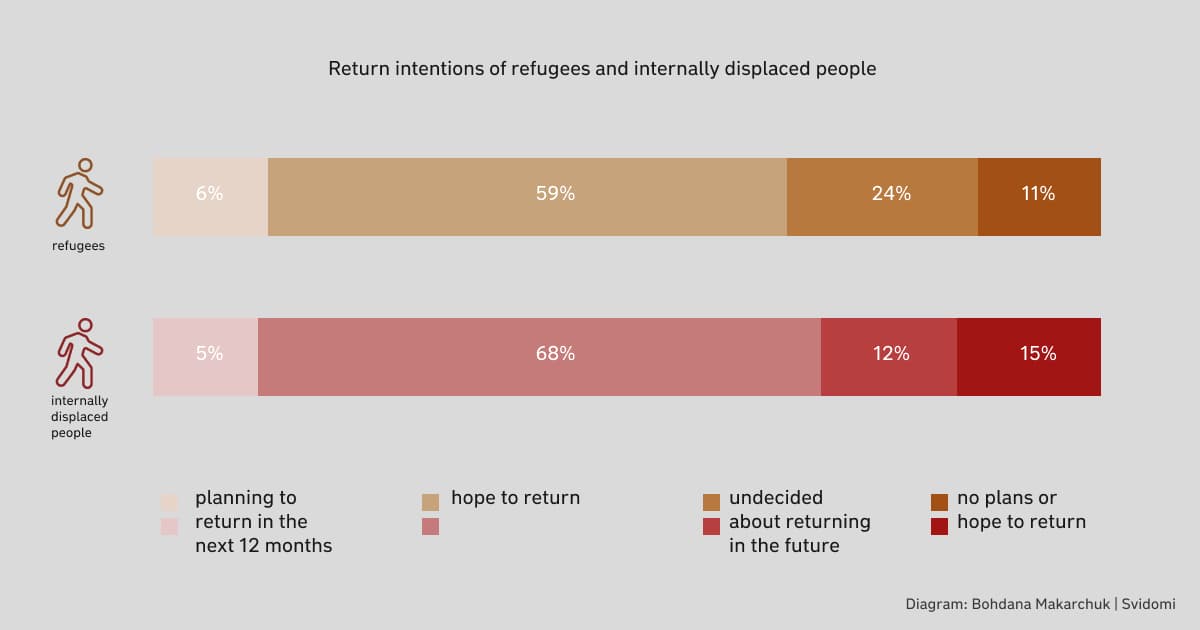
At the beginning of 2024, the majority of respondents cited the security situation in Ukraine, as well as the lack of financial resources and housing, as the main factors preventing their return. At the same time, 55% of migrants who returned to Ukraine from abroad said that there were fewer job opportunities than they had expected.
What are the ways the government offers to solve the problem?
The Ministry of Social Policy of Ukraine has developed a strategy for Ukraine's demographic development until 2040. It envisages three main solutions to the demographic problem.
The first is to support the growth of the birth rate, hence the plans to increase maternity benefits. However, it is not yet known where the money will come from, and the decline in the birth rate is a global trend and typical of many developed countries.
Ella Libanova, director of the Mykhailo Ptoukha Institute for Demography and Social Studies, believes that Ukraine should not expect a baby boom after the war because of advanced contraception and a lack of need for children among families.

The biological urge to reproduce one's own kind, to leave something behind, is usually satisfied with one child. A second child is a very serious risk of poverty. Besides, our women are very well educated: they want to use their potential not only within the family,
she said in an interview with Ukrainska Pravda.
Today, on average, a woman gives birth to only one child. In 2021, this figure was 1.2 children. To ensure simple reproduction of generations under Ukrainian mortality conditions, an average woman should give birth to about 2.15 children in her lifetime. It is impossible to achieve such results, says Ella Libanova.
The second is the return of Ukrainians abroad. It is important to note that the state is interested in the return not only of those who were forced to leave due to the full-scale invasion but also of Ukrainians abroad, i.e. representatives of the diaspora. For this purpose, the Ministry of Foreign Affairs has a Department for Ukrainians Worldwide. In November last year, Mariana Betsa was appointed Ambassador-at-Large for Ukrainians Worldwide (previously, she was the head of the Ukrainian Embassy in Estonia — ed.).
The Department notes that "the team of the Ministry of Foreign Affairs of Ukraine is actively working to strengthen cooperation with Ukrainian communities abroad. Svidomosti asked the Department for Ukrainians Abroad of the Ministry of Foreign Affairs to comment on what the MFA's strategy is for cooperation with Ukrainians abroad and Ukrainians abroad and whether the decision to temporarily suspend the provision of consular services harms this strategy. The Ministry of Foreign Affairs responded that the decision to suspend the provision of consular services to certain categories of Ukrainian citizens was "a temporary step due to the need to resolve issues related to the military registration of citizens of mobilization age who are abroad and, in cooperation with other relevant authorities, to resolve technical issues that arose during the implementation of the norms and provisions of the Mobilization Law, which came into force on May 18, 2024".
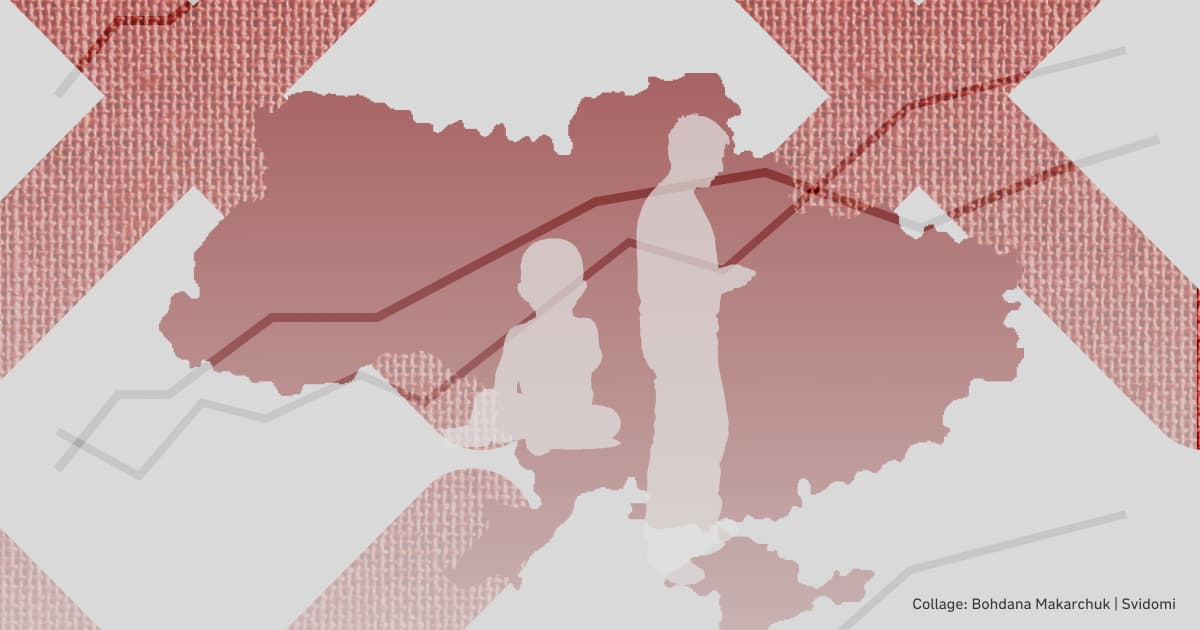
"Currently, the provision of consular services to all categories of applicants is carried out following the requirements of the law regarding the need for male citizens of Ukraine aged 18 to 60 to update their data, as well as the exceptions established from the requirements," the Ministry of Foreign Affairs noted in response to the request.
First Deputy Prime Minister and Minister of Economy Yuliia Svyrydenko believes that there are four key factors for Ukrainians' return from abroad: security, the opportunity to be employed or start their own business, education, and housing. The security factor includes, among other things, the humanitarian demining of the country.
The Center for Economic Strategy adds that rapid post-war reconstruction of the affected regions, assistance to people from the affected and occupied areas during the reconstruction period, development of public-private partnerships, increased resources for communication with Ukrainians abroad through diplomatic missions, facilitating the reintegration of children to study in Ukrainian schools, and admission of Ukrainian graduates of foreign schools to Ukrainian higher education institutions can also facilitate the return.

Ukrainians abroad: who are they?
Olha Tokariuk, a Ukrainian journalist and research fellow at the Ukraine Forum at Chatham House who focuses on migration and Ukrainians abroad, explains in a commentary for Svidomi that Ukrainians abroad can be divided into three broad categories. The first is the old diaspora, i.e. Ukrainians who left about 100 years ago and those who were forcibly expelled after the Second World War. The second is labour migrants, Ukrainians who left the country in the late 1990s and early 2000s for economic reasons. The third are Ukrainians who left at the beginning of the full-scale invasion.
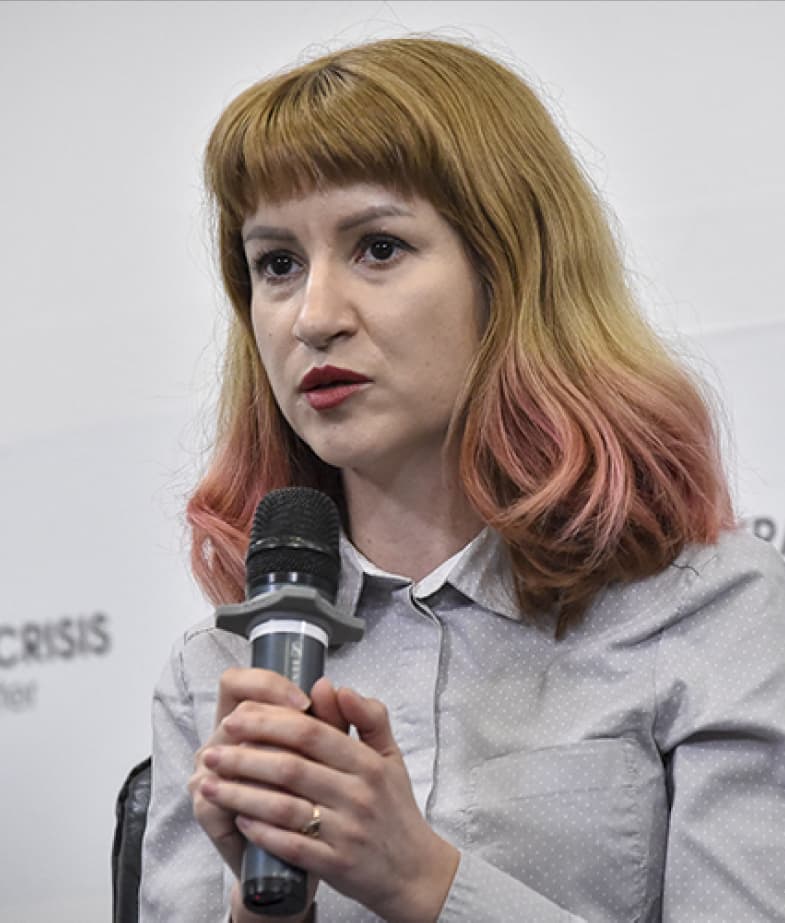
The third group, which has attracted the most attention, is often referred to as "refugees," although this is not entirely correct from a legal point of view. The vast majority of these people do not have refugee status. They have temporary protection status,
says Tokariuk.
Temporary protection status gives Ukrainians more access to the labour market, education, and social services than refugee status. Another advantage is that Ukrainians with temporary protection status can leave the country, while those with refugee status cannot.
"At the same time, refugee status leads to the prospect of permanent residence in the country that granted it, and even citizenship. Ukrainians who left the country after February 24, 2022, now live in the status of temporary protection. I assume that this has been a compromise for some time between the Ukrainian government and the governments of the countries where Ukrainians are staying. The Ukrainian authorities insist that these countries do not give Ukrainians the opportunity to obtain citizenship or permanent residence status because they hope that these people will return," the researcher says.
At the moment, it is impossible to make a collective portrait of the Ukrainians who left their country after February 24, 2022. First, it was women with children. Now the percentage of men who left and are abroad is changing. Some of them left legally: fathers of children, people with disabilities, men who were demobilized. Others left illegally.
"However, recent studies, particularly by the Center for Economic Strategy and the American Institute in Kyiv, show that most Ukrainians abroad who left after the start of the full-scale invasion are still women with children, mostly middle-aged with a fairly high level of education," says Olha Tokariuk.
At the same time, research shows the problem of access to the labour market for Ukrainians who left because of the war.
"Especially in Poland. Ukrainians work there in different specialities than they did in Ukraine. We can say that, to a certain extent, they lose their qualifications,"
adds Tokariuk.
The conditions of stay for Ukrainians in different countries differ—some countries provide fairly wide access to various social services, and others provide less. The first group includes Germany, Norway, and the United Kingdom. Countries that provide less access to social services for Ukrainians are Poland, the Czech Republic, Italy, Spain, and Greece.
"In the United States, for example, Ukrainians under temporary protection cannot leave the country. This is rather a disadvantage for Ukraine because people who have the opportunity to engage in circular migration, i.e. to move freely between Ukraine and their country of temporary residence, maintain their ties with Ukraine," Tokariuk says.
Is it effective to communicate with Ukrainians abroad?
Olha Tokariuk believes that when communicating with Ukrainians abroad, a distinction should be made between Ukrainians abroad who are fully legal and those who entered the country illegally. Communication with the former should be aimed at facilitating their return.
"Ukraine has urgent problems related to its survival and existential struggle, so we cannot demand that the government should be primarily concerned with what to offer Ukrainians abroad to induce them to return. But at least we can avoid making things worse. First of all, we should not aggravate the situation with ill-considered, emotional decisions and the kind of communication that divides Ukrainians on both sides of the border," the researcher says.

The decision to temporarily suspend consular services was an emotional one, and it sparked an emotional discussion on both sides of the border. Both sides in this debate went to extremes, Tokariuk says.
Ukrainians at home and abroad should unite around common and fundamental goals—the preservation of Ukraine and the development of a successful democratic state. Ukrainians abroad can become more involved in Ukraine's life, even while living abroad. First and foremost, this means advocating for Ukraine's interests in the communities and at the local level where they live. Embassies can work more actively with Ukrainian communities.
Just as at home, when initiatives come first from civil society, Ukrainians abroad unite in some grassroots initiatives and organize fundraisers or festivals of Ukrainian culture. We need to work with them
says the researcher.
Inside the country, Ukrainians are living through a war, constant missile and drone attacks, and an economic crisis while trying to support the armed forces. But Olha Tokariuk notes that life for Ukrainians abroad is no picnic either.
"Integrating into a foreign country, learning the language, a complete break in social ties, and working in a less skilled job. If you are a mother with children, it is difficult for a woman to take care of children alone and try to realize herself or at least earn money to feed these children," she says.
Deepening the division among Ukrainians is primarily beneficial to Russia, which uses its disinformation machine to spread destructive trends and undermine unity.
Are migrant workers a resource or a threat?
The third step in the strategy proposed by the Ministry of Social Policy is to attract migrants from other countries. The state currently hardly communicates this idea, and it is somewhat marginalized on social media.
Tokariuk explains that it is normal for Ukrainians to feel threatened by representatives of other cultures during an existential war to preserve their identity.
"We cannot say that the people expressing these fears are far-right or that their doubts have no grounds. These fears have no basis in Germany or Britain, where the country is not under external aggression. But we have to appeal to facts and real needs," she says.
With well-designed integration policies and a strong local culture and identity, attracting migrants can be successful.
"There are discussions about how well this practice has worked in the UK or Germany. If we leave emotions aside, the contribution of migrants to the economy is high (there is also an example of how Ukrainians in Poland boost the country's economy — ed.)
Ukrainian language courses, integration courses and cultural studies should be compulsory for migrants, and Ukrainian values lessons can be introduced for children, just as they teach "British values" in the UK.
"We need to show migrants the rules of life in the country. We have to show them how a democratic society works, especially when they come from countries that are not democracies, like the countries of Central Asia. Simply opening the borders will not work. It will only aggravate social tensions and radicalize public opinion," the researcher says.
The necessity of this policy should be discussed with Ukrainians because no single factor (stimulation of the birth rate or return of Ukrainians from abroad) will improve the demographic situation.

